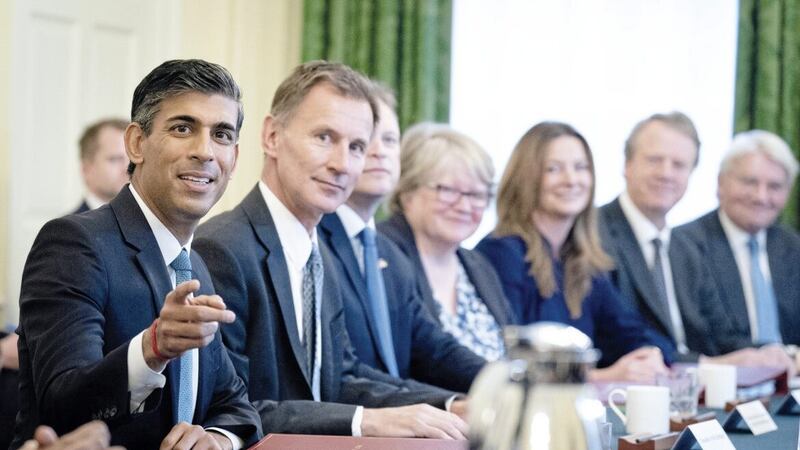THE British Chancellor of the Exchequer, Jeremy Hunt, in what was advertised last week as a major speech, was to lay out the plans for economic growth of what passes for Sunak’s government.
His reception was poor, even derisory. He tried to build his remarks around four ‘Es’, like education, enterprise and such like. The Institute of Directors, a Conservative-supporting body par excellence you would think, poured cold water on his offering. They said his speech was summed up in a fifth ‘E’ – empty. They’re right.
Britain is in a dreadful state. Tim Harford, Financial Times columnist and author of nine books on economics, wrote a devastating analysis of Britain’s economy on January 20.
The last 12 years have been a lost decade in terms of growth and productivity. The Institute of Fiscal Studies predicts a second lost decade coming. A National Institute Economic Review study looked back 260 years before finding a worse run of performance and concluded the last 15 years have been unimaginably bad.
Harford shows that all evidence points to no improvement. Tax is high, higher than for 40 years, high national debt is a fixture, people are struggling to pay for basics; 25 per cent can’t afford to save £10 a month.
Public services are awful: the NHS crisis the Conservatives caused (not least by Jeremy Hunt’s disastrous time as health secretary) visible to all, the worst railways in Europe. Disposable income is falling, interest rates are rising.
Now, you might ask what’s the point of hand-wringing about Britain’s precipitous decline? There’s nothing anyone here can do about it. You’d have a point. No-one here votes for the government, no-one here has any say in what a British government does. Curiously no-one laughs when Jeffrey Donaldson complains about a democratic deficit when the EU changes customs and excise rules.
In fact there is a point. Unionists extol Britain as their guiding star, providing advantages for lifestyle and benefits which make it worthwhile to be in what is hilariously known as the United Kingdom. Any objective examination shows that if it were ever true, it’s utter rubbish now.
Helpfully a colleague of Harford’s, John Burn-Murdoch, last September pulled together a set of figures in the Financial Times which show that the lowest-earning British households are among the poorest in Europe – 20 per cent lower than their counterparts in Slovenia. Next year the average Slovenian household will be better off.
Perhaps the most telling figure is that the poorest people in the south have a living standard 63 per cent, yes 63 per cent, higher than the poorest in the north. Not exactly headlines on BBC NI with their harping on about an imaginary Norn Irn economy. Look, if Britain’s a basket case, which it is, what is the poorest, most deprived region of the UK, here?
Unionist supporters don’t know this. No-one, least of all the media outlet most attached to Britain, tells them, rather creates a non-existent, wait for it, ‘local economy’, as if it has somehow independence from Britain. Certainly unionist political leaders deny it hotly, cling desolately to ‘our wee country’, this calamitous construct.
The weekend’s poll on connections between people north-south reinforced the mutual ignorance about each entity on the island. The media here, apart from this paper, and the Derry Journal, don’t cover politics in the south, let alone economics.
Only in the last few years has the Economic and Social Research Institute in the south begun to do comparative studies on north-south, education, productivity, health. It’s very telling that such studies have never been done before. The results confirm how far behind the north lies in all fields. The latest study is child care, showing fewer women in the north can work full time because of its absence or lack.
However, statistics aren’t everything. After all, Jeffrey Donaldson could have lived with 40,000 job losses if he’d got a hard border. Eating grass is preferable.









